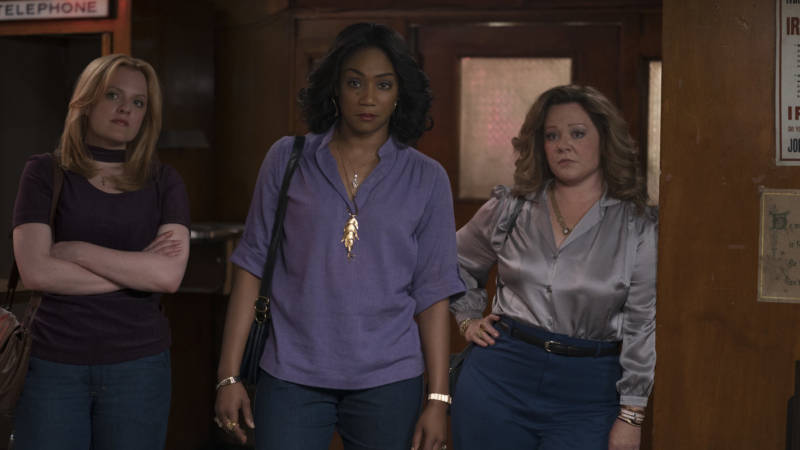In The Kitchen, Tiffany Haddish snatches a revolver from her just-out-of-jail gangster husband, gets up in his face, and snarls, “It’s my business now.”
It’s a strong moment—one that gets at something deeper than the surface pleasures and platitudes of a mob movie led by women; it intimates just how caustic and corrosive running a business can be. How are the consequences of the American Dream—the ruthless ambitions that drive capitalism—gendered?
That’s the question at the center of Andrea Berloff’s film, based on the comic book miniseries by Ollie Masters and illustrated by Ming Doyle. Yet so much of what’s promising about The Kitchen, including its ability to explore that question meaningfully, is hampered by its need to justify its own existence—to keep convincing you that it’s sufficiently woke.
The film follows three women (Melissa McCarthy, Tiffany Haddish, and Elisabeth Moss) whose Irish gangster husbands (Brian d’Arcy James, Kevin O’Carroll, and Jeremy Bobb, respectively) are sent to jail, leaving the three to pick up the pieces in 1970s-era Hell’s Kitchen. As we watch them assert power and claim turf for themselves,The Kitchen does give Haddish and Moss room to flex their genre muscles, but it habitually second-guesses its own decision to tell its story in the first place.
The palpable, hesitant self-doubt the film exudes is ironic, given the trajectory of its characters’ ascension in the mob world. Kathy (McCarthy), Ruby (Haddish), and Claire (Moss) have to prove to the family that anything male mobsters can do, they can do better. It feels like the film, too, keeps trying to say this. In several scenes, characters explicate and underline that women can be gangsters, too, and that the world is misogynistic, patriarchal and racist.

9(MDAxOTAwOTE4MDEyMTkxMDAzNjczZDljZA004))

